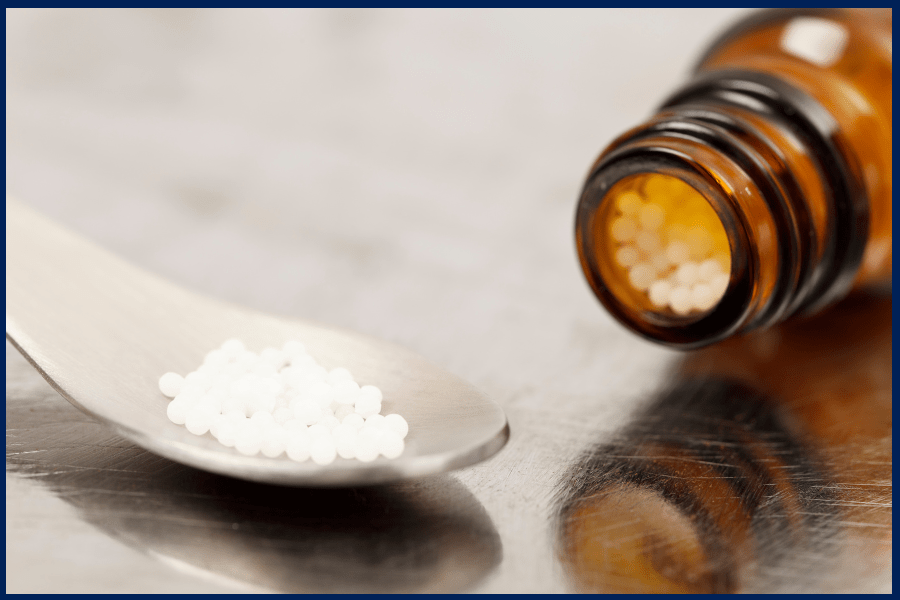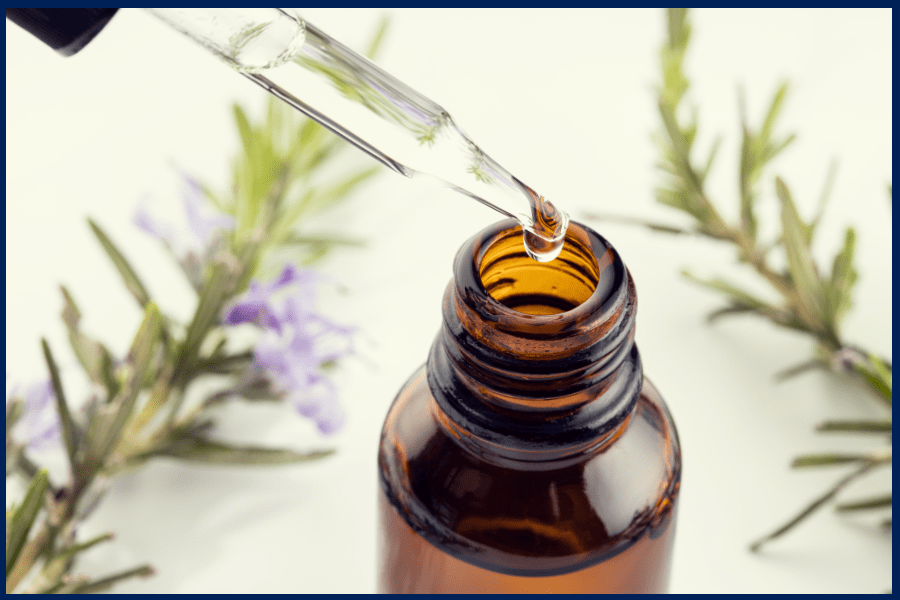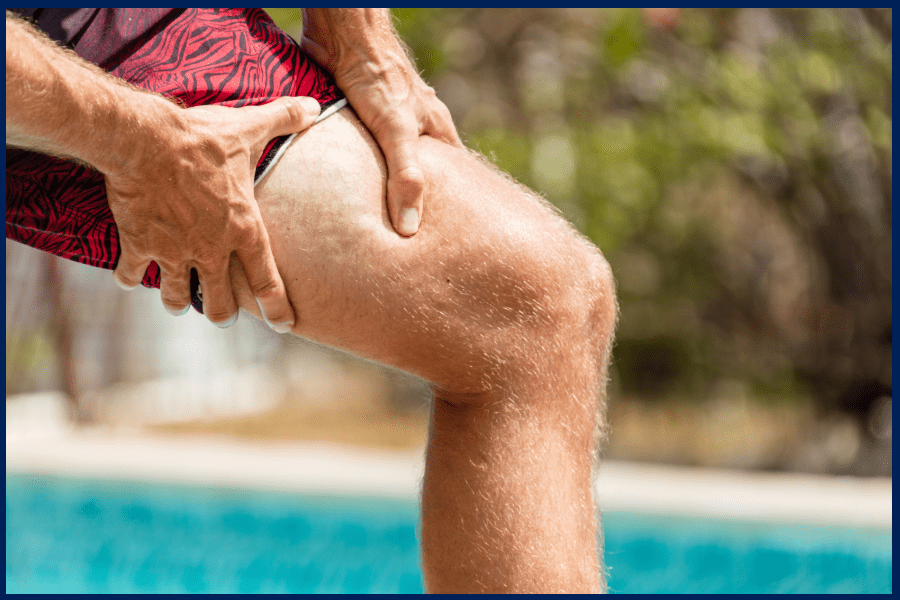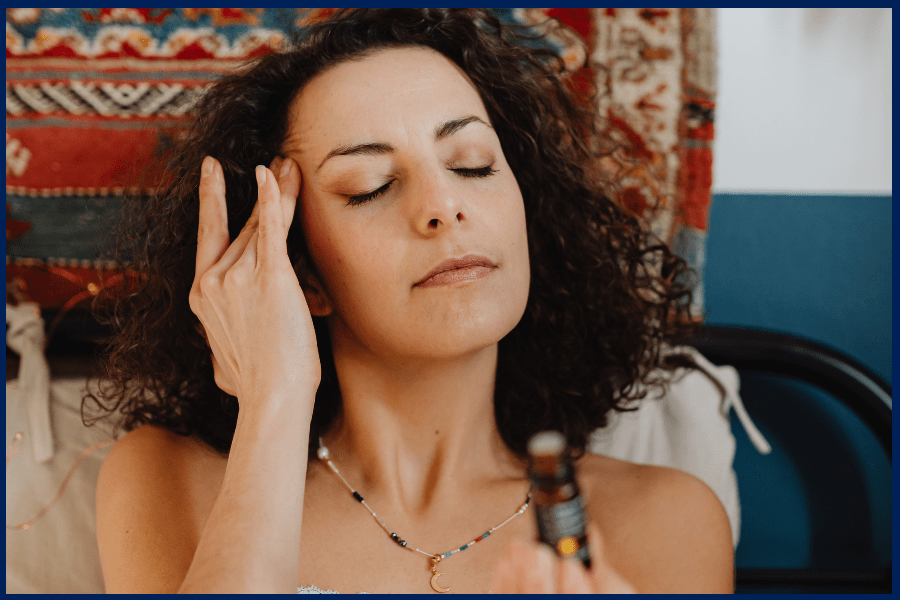Essential oils have long been used as a homeopathic solution to relieve discomfort caused by muscle cramps. As a form of alternative medicine, essential oils offer numerous benefits, including their ability to reduce inflammation and provide pain relief. In this article, we’ll share top tips and tricks on using essential oils for muscle cramps and other homeopathic remedies that can complement your essential oil use.
So, let’s explore the power of these natural remedies together and put an end to your aching muscles!
Understanding Homeopathic Medicine and Its Various Forms

Before diving into essential oils, it’s important to understand the broader context of homeopathic medicine and how essential oils fit into this alternative healing approach.
What is Homeopathic Medicine?
Homeopathic medicine is a holistic system of healing that dates back over 200 years. It operates on the principle of “like cures like,” meaning that a substance that causes symptoms in a healthy person can treat the same symptoms in someone unwell.
Homeopathic remedies are made from natural substances like plants, minerals, or animal products, which are diluted multiple times to create a potent and personalized treatment.
Some of the benefits of homeopathic medicine include the following:
- A gentle and non-invasive approach to healing
- Focus on treating the root cause of the problem, not just the symptoms
- Encourages the body’s natural healing process
- Works well with other forms of alternative medicine
Essential Oils as Homeopathic Remedies
Essential oils are concentrated liquids extracted from plants, possessing the plant’s natural aroma and therapeutic properties. They are a perfect example of homeopathic remedies, as they offer potent healing benefits without the side effects commonly associated with conventional medicine.
As homeopathic remedies, essential oils can be used alongside other alternative treatments, such as Cramp911 from Delcorean. Combining essential oils with other homeopathic products can create a comprehensive and personalized approach to treating muscle cramps and various other ailments.
Best Essential Oils for Muscle Spasms, Cramps, and Soreness: The Basics

Now that we have a better understanding of homeopathic medicine and how essential oils fit into this category, let’s explore the basics of using essential oils for muscle cramps, including why they work and which ones are the most effective.
Why Essential Oils Work for Muscle Cramps
Essential oils have a unique ability to provide relief from muscle cramps due to their natural therapeutic properties. Here are some reasons why essential oils work so well for muscle cramps:
- Anti-inflammatory properties: Many essential oils possess potent anti-inflammatory properties, helping to reduce swelling and inflammation in the affected area, which can alleviate pain caused by muscle cramps.
- Pain relief benefits: Essential oils can also provide pain relief by interacting with the body’s pain receptors, reducing the sensation of pain and discomfort. Additionally, some essential oils have a warming or cooling effect on the skin, further contributing to pain relief.
- Relaxing effects: Some essential oils have calming and relaxing properties, which can help ease tense muscles and promote relaxation, ultimately helping to relieve muscle cramps.
Top Essential Oils for Muscle Aches, Spasms, and Cramps
Several essential oils have proven to be effective in alleviating muscle cramps. Here are some of the top choices:
- Peppermint oil: With its cooling and analgesic properties, peppermint essential oil is an excellent choice for easing muscle cramps, as it increases blood flow to the affected area, relaxes tense muscles, and provides pain relief.
- Lavender oil: Known for its calming and anti-inflammatory effects, lavender oil can help relax tight muscles and reduce swelling, making it a popular option for treating muscle cramps.
- Eucalyptus oil: This oil has potent anti-inflammatory and analgesic properties, effectively reducing pain and inflammation associated with muscle cramps.
- Rosemary oil: Rosemary oil is known for improving circulation and reducing muscle pain, making it a suitable choice for those suffering from muscle tension.
Tips and Tricks for Using Essential Oils for Muscle Cramps, Tension, and Aches

To make the most of essential oils for muscle cramp relief, it’s important to understand the best practices for using them effectively.
In this section, we’ll discuss proper dilution and application methods, the benefits of aromatherapy and diffusion, and how to combine essential oils with other homeopathic remedies for a comprehensive approach to alleviating muscle cramps.
Proper Dilution and Application
Essential oils are highly concentrated and should be diluted to avoid irritation before applying them to the skin. Here are some tips for proper dilution and application:
- Carrier oils: Always dilute essential oils with carrier oil, such as coconut oil, jojoba oil, or sweet almond oil, before applying it to the skin. Carrier oils help to reduce the concentration of essential oils, making them safe for topical use.
- Ratios for dilution: As a general guideline, mix 1-2 drops of essential oil per teaspoon of carrier oil. Consult a reputable source or a certified aromatherapist for a more specific dilution ratio.
- Topical application methods: Gently massage the diluted essential oil mixture onto the affected area, using circular motions to help the oil penetrate the skin and reach the underlying muscles. You can also use a warm or cold compress to enhance the mixture’s effectiveness.
Aromatherapy and Diffusion
In addition to topical application, essential oils can be used for aromatherapy and diffusion to help relieve pain:
- Benefits of inhalation: Inhaling essential oils can stimulate the olfactory system and affect the limbic system, which is responsible for emotions and memories. This can reduce stress and promote relaxation, further contributing to muscle cramp relief.
- Types of diffusers: There are various types of essential oil diffusers available, including ultrasonic, nebulizing, and heat diffusers. Choose the one that best suits your needs and preferences.
- Suggested diffusion times: Diffuse essential oils for 20-30 minutes at a time –– taking breaks in between sessions to prevent overexposure.
Combining Essential Oils with Other Homeopathic Remedies
Essential oils can be used with other homeopathic remedies, such as those offered by Delcorean, to enhance their effectiveness and provide a more personalized treatment plan.
In addition to essential oils, explore other natural therapies like massage, acupuncture, and heat therapy to alleviate muscle cramps effectively.
Precautions and Safety Tips

As with any form of alternative medicine, it’s essential to take precautions when using essential oils for muscle cramps.
By taking these precautions and safety tips into account, you can safely and effectively use essential oils for muscle cramp relief while minimizing the risk of any adverse reactions or compromised oil quality.
Understanding Allergies and Sensitivities
Even though essential oils are natural remedies, it’s still possible to experience allergic reactions or sensitivities to certain oils. Here are some tips to keep in mind:
- Patch testing: Before applying any essential oil to a larger area, perform a patch test by applying a small amount of diluted oil to the inside of your forearm. Wait for 24 hours to see if any adverse reaction occurs, such as redness, itching, or swelling.
- Recognizing signs of an allergic reaction: If you experience symptoms like hives, difficulty breathing, or swelling of the face, lips, tongue, or throat after using an essential oil, discontinue use immediately and consult a healthcare professional. Healthcare professionals at urgent care facilities often see people for a sore throat.
Essential Oil Storage and Shelf Life
Proper storage and awareness of shelf life can help ensure that your essential oils remain effective and safe. Keep these tips in mind:
- Proper storage conditions: Store essential oils in a cool, dark place away from direct sunlight, heat, and humidity. Keep the bottles tightly sealed to prevent oxidation and evaporation.
- Expiration and quality indicators: Essential oils typically have a shelf life of 1-5 years, depending on the type of oil and storage conditions. Look for aroma, color, or consistency changes as signs that the oil may have expired or lost its potency.
Embrace the Power of Natural Remedies for Muscle Pain Relief

Remember to follow the tips and tricks provided in this guide, including using massage oil with diluted essential oils and keeping safety precautions in mind, to ensure you can easily alleviate muscle cramps, reduce spasms, and soothe sore muscles.
Don’t hesitate to explore the world of natural remedies further, including products like those offered by Delcorean, to create a comprehensive and personalized approach to relieving pain and muscle soreness. By embracing the power of homeopathic medicine, you’ll not only soothe your aching muscles but also pave the way towards overall well-being and holistic health.


